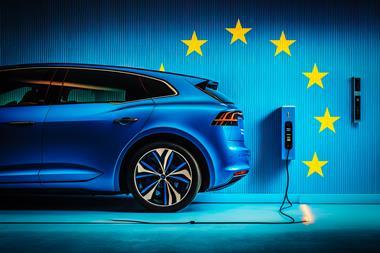After wreaking havoc on the supply chain and putting the European automotive industry’s competitiveness into question in 2022, energy tariffs reverted towards long-term inflation-adjusted averages last year. According to industry sources, a drop in energy costs was the key factor keeping the general operational costs of automotive components manufacturers at bay.
Finished vehicle and automotive components costs surged in 2023 across major European markets, Fransua Vytautas Razvadauskas – insight manager with Euromonitor International reported.

“However, the rise can largely be attributed to the growth of transport equipment and labour costs,” Razvadauskas said, stressing that unlikely the previous year the energy prices were not to blame.
In the wake of the skyrocketing energy tariffs in 2022, European analysts voiced fears that the crisis may erode European competitiveness in the years to come.
In October 2022, the European Association of Producers of Parts for the Automotive Industry (Clepa) warned that soaring energy prices and a hike in other operational costs negatively affected the EU automotive sector and its customers.
The Samar Automotive Market Research Institute also warned that the energy crunch threatened not just investment but the very survival of the critical automotive industries. European component manufacturers were believed not to be able to sustain such high costs in the face of competition from rivals in China and the US.
Clepa voiced particular concerns over the EU Commissioner Thierry Breton’s calculations that energy prices in Europe were seven to eight times higher than in the US, suggesting this could trigger an investment outflow from the industry.
On the rebound
However, the apocalyptic forecasts did not come true and at the beginning of 2023 European politicians declared the crisis was essentially over.
Lowering energy tariffs, in fact, appeared to be the key factor preventing the operational costs in the automotive components industry from going through the roof in 2023. Razvadauskas estimated that component suppliers spent 31% less on energy last year than they had in the previous year.
The essential end of the energy crisis provided a fertile ground for the European automotive industry’s post-coronavirus rebound.
Razvadauskas said that, for instance, western Europe recorded sales of 14.1m finished vehicles in 2023, a rise of 16% compared to a year earlier. He added that though this is still a far cry from 16.7m sold in 2019, the upward trend subsequently drove demand for automotive parts in every major western European economy.
Market players also indicate that the worst thing about the 2022 energy crunch is that it struck the industry at a time when it was more vulnerable than ever.
“The European energy crunch hit post-Covid, when the automotive industry had seen its tectonic plates shift more than during its 100-year history,” said Andrew Austin, group operations director with Priority Freight.
A wounded industry was still recovering from a financially destabilised economy, which was further exacerbated by the conflict in Ukraine and the pressures on energy prices.”
Boehne Trix, a spokesperson for Bosch, commented: “We were able to supply our production and operating facilities also during the years 2022 and 2023. A forward-looking procurement strategy and an already high level of energy efficiency, which the Bosch Group achieved through its global climate neutrality in 2020, are crucial for this.”
Trix did not provide any information on whether the European energy crunch impacted Bosch operations, only emphasising that “a reliable and affordable energy supply is, of course, crucial for Bosch and its suppliers and partners in the industry and a decisive factor in evaluating the competitiveness of a country or region.”
The shockwaves of the 2022 energy crunch are still felt in Europe, taking a toll on consumer behaviour.
“Higher energy prices have, however, contributed significantly to a decline in consumer confidence. As a result of rising interest rates, the cost-of-living, of running an electric vehicle and concerns over EV infrastructure, consumer confidence has taken a knock and predicted levels of demand have not been realised,” Austin said. He added that the issue was now part of the landscape of consumer demand and Priority Freight would be watching it with interest.


























![Global[1]](https://d3n5uof8vony13.cloudfront.net/Pictures/web/a/d/s/global1_726550.svgz)













No comments yet